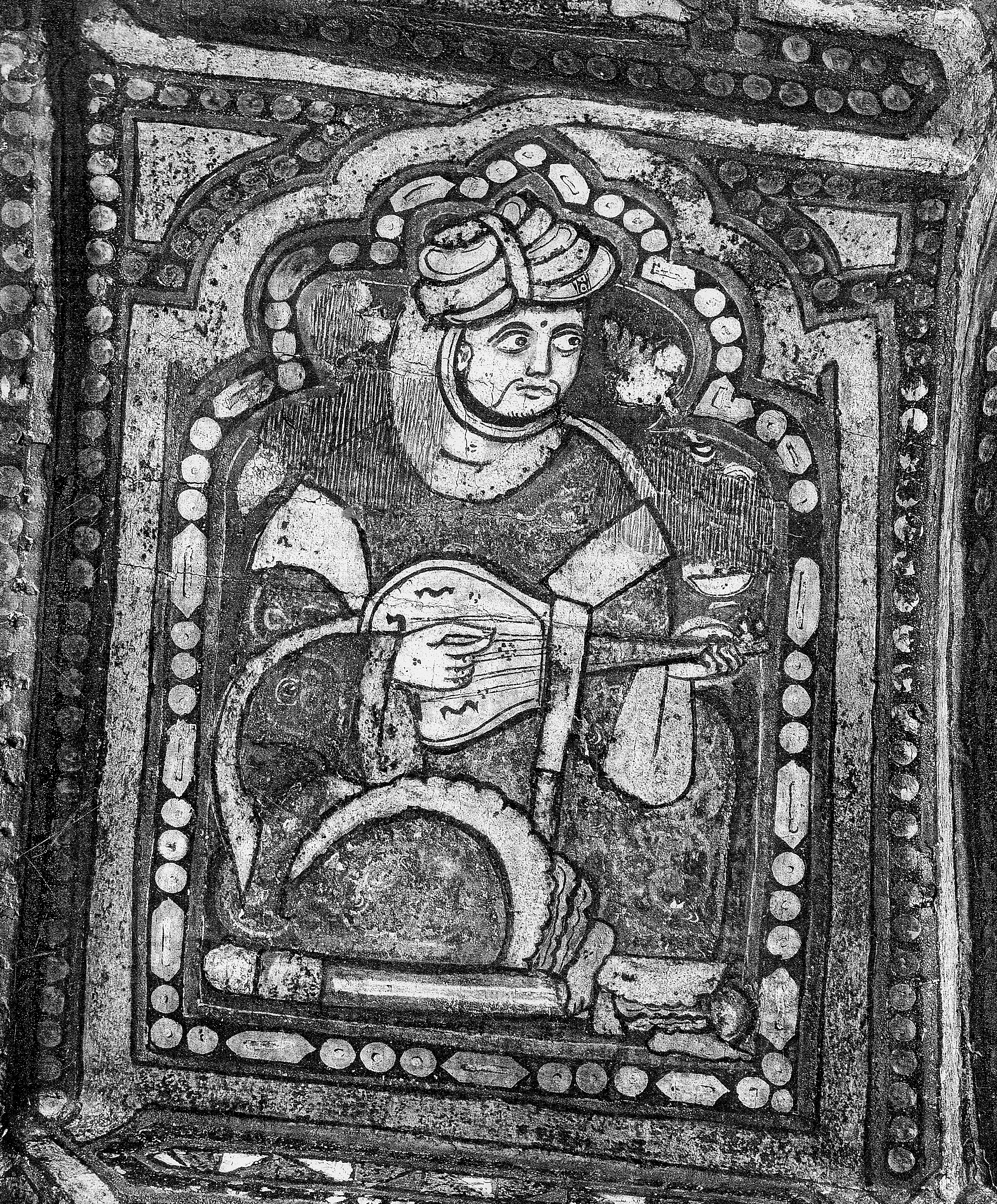|
Rāyāt Al-mubarrizīn Wa-ghāyāt Al-mumayyazīn
''Rāyāt al-mubarrizīn wa-ghāyāt al-mumayyazīn'' ( ar, رايات المبرزين وغايات المميزين, ''Banners of the Champions and the Standards of the Distinguished'', also translated as ''Pennants of the Champions'') is a thirteenth-century anthology of Arabic Andalucian poetry by Ibn Said al-Maghribi.Robert Irwin, ''The Penguin Anthology of Classical Arabic Literature'' (Harmondsworth: Penguin, 1999), p. 301. It is, in the words of Louis Crompton, 'perhaps the most important' of the various medieval Andalucian poetry anthologies. 'His aim in compiling the collection seems to have been to show that poetry produced in the West was as good as anything the East had to offer (and that stuff by Ibn Sa'id and his family was especially good)'. It survives today in only one manuscript. History of the compilation Origins Ibn Said compiled ''Rāyāt al-mubarrizīn wa-ghāyāt al-mumayyazīn'' in Cairo, completing it on 21 June 1243 (641 by Islamic dating). Its patron ... [...More Info...] [...Related Items...] OR: [Wikipedia] [Google] [Baidu] |
Ibn Said Al-Maghribi
Abū al-Ḥasan ʿAlī ibn Mūsā ibn Saʿīd al-Maghribī ( ar, علي بن موسى المغربي بن سعيد) (1213–1286), also known as Ibn Saʿīd al-Andalusī, was an Arab geographer, historian, poet, and the most important collector of poetry from al-Andalus in the 12th and 13th centuries. Biography Ibn Said was born at Alcalá la Real near Granada to a prominent family which was descended from the Companion of the Prophet Ammar ibn Yasir. Many of his family members were literary figures, and grew up in Marrakesh. He subsequently studied in Seville and stayed in Tunis, Alexandria, Cairo, Jerusalem and Aleppo. At the age of 30, he undertook a pilgrimage to Mecca. He was also a close friend of the Muwallad poet Ibn Mokond Al-Lishboni (of Lisbon). His last years were spent in Tunis, and he died there in 1286. Writings Ibn Said al-Maghribi wrote or compiled 'at least forty works on various branches of knowledge'. Ibn Said's best known achievement was the completion ... [...More Info...] [...Related Items...] OR: [Wikipedia] [Google] [Baidu] |
Ibn Bassam
Ibn Bassām or Ibn Bassām al-Shantarinī (; 1058-1147) was an Arab poet and historian from al-Andalus. He was born in Santarém (sometimes spelled Shantarin or Xantarin) and hailed from the Banu Taghlib tribe. He died in 1147. Ibn Bassam describes how the incessant invasions of the Castillans forced him to run away from Santarém in Portugal, "the last of the cities of the west," after seeing his lands ravaged and his wealth destroyed, a ruined man with no possessions save his battered sword. Especially well known is his anthology (The Treasury concerning the Merits of the People of Iberia) one of the most important sources of information in the field of history, literature and culture of the Almoravid dynasty. It was edited in eight volumes by Ihsan Abbas, written in rhymed prose, many of its biographies are contemporary and filled out with details taken from the Kitab al-Matin of Ibn Hayyan Abū Marwān Ḥayyān ibn Khalaf ibn Ḥusayn ibn Ḥayyān al-Qurṭubī () ( ... [...More Info...] [...Related Items...] OR: [Wikipedia] [Google] [Baidu] |
Ibn Al-Zaqqaq
Ali ibn Attiya ibn al-Zaqqaq () (c. 1100 Valencia - 1133 or 1134) was one of the great poets of Al-Andalus during the reign of the Almoravids. He was a Muslim from Banu Lakhm. His mother was the sister of fellow Andalusian poet, Ibn Khafaja, and there is scholarly dispute regarding his father. He was a disciple under philosopher Ibn Ṣîd de Badajoz. The patrons of Ibn al-Zaqqaq were two Valencian families, a governor, a family of Almoravid dignitaries, probably the supreme Almoravid judge of the East and perhaps the Almoravid ruler Ali ibn Yusuf himself. He wrote mostly panegyric qasidas, in a time where poetry of that kind was quickly leaving patrons' payrolls in other areas of Spain. ''El sueño de Al-Zaqqâq'' by Luis Delgado is a collection of the works of Ibn Al-Zaqqaq set to music. Reception Literary historian Emilio García Gómez referred to al-Zaqqaq's descriptive poetry as "the dramatization of metaphor".García Gómez, Emilio. ''Ibn al-Zaqqaq: Poesías''. Madrid, 1 ... [...More Info...] [...Related Items...] OR: [Wikipedia] [Google] [Baidu] |
Ibn Khafaja
Abu Ishaq ibn Ibrahim ibn Abu al-Fath (1058–1138/9), called Ibn Khafajah (إبن خفاجة), a native of Alzira, was one of the most famous poets of al-Andalus during the reign of the Almoravids.Samuel G. Armistead, E. Michael Gerli (ed.), ''Medieval Iberia, an Encyclopedia'', 2003, entry "Ibn Khafaja" He was born in 1058 in Alzira (Arabic: جزيرة شقر) near Valencia where he spent most of his life. He was the maternal uncle of poet Ibn al-Zaqqaq.María Rosa Menocal, Raymond P. Scheindlin, Michael Anthony Sells, ''The literature of Al-Andalus'', Cambridge University Press, 2000, p. 224 He developed nature poetry to a great level of sophistication.Salma Khadra Jayyusi, "Nature poetry and the rise of Ibn Khafaja," in: Salma Khadra Jayyusi (ed.), ''The legacy of Muslim Spain'', Leiden: E. J. Brill, 1994, p. 381 His poetry includes a few panegyrics qasidas, e.g. to Yusuf ibn Tashfin whom he praised out of thankfulness that he had saved Al-Andalus from chaos by retaking the ... [...More Info...] [...Related Items...] OR: [Wikipedia] [Google] [Baidu] |
Ibn Hamdis
Ibn Ḥamdīs al-ʾAzdī al-Ṣīqillī () ( 1056 – c. 1133) was a Sicilian Arab poet. Ibn Hamdis was born in Syracuse, south eastern Sicily, around 447 AH (1056 AD). Little is known of his youth, which can be reconstructed only through a literal reading of scattered verses in his '' dīwān''. His poetry displays a thorough mastery of the Arabic poetic canon, as well as a sophisticated linguistic knowledge, which points to an elite education. It is probable that Ibn Hamdis was raised in a prosperous family, likely landed gentry, who settled the Val di Noto early after the Muslim conquest of Sicily in the 9th century. Ibn Hamdis enjoyed the benefits and reaped the fruits of such privileged upbringing. However, the prosperity of the Muslims of Sicily was not to last. In the second half of the 11th century the political stability of Muslim Sicily had been severely compromised by decades of internecine struggle. The Kalbid court of Palermo and its ephemeral splendour had long bee ... [...More Info...] [...Related Items...] OR: [Wikipedia] [Google] [Baidu] |
Ibn ‘Ammār Abū Bakr Muḥammad ibn ʿAmm� |

